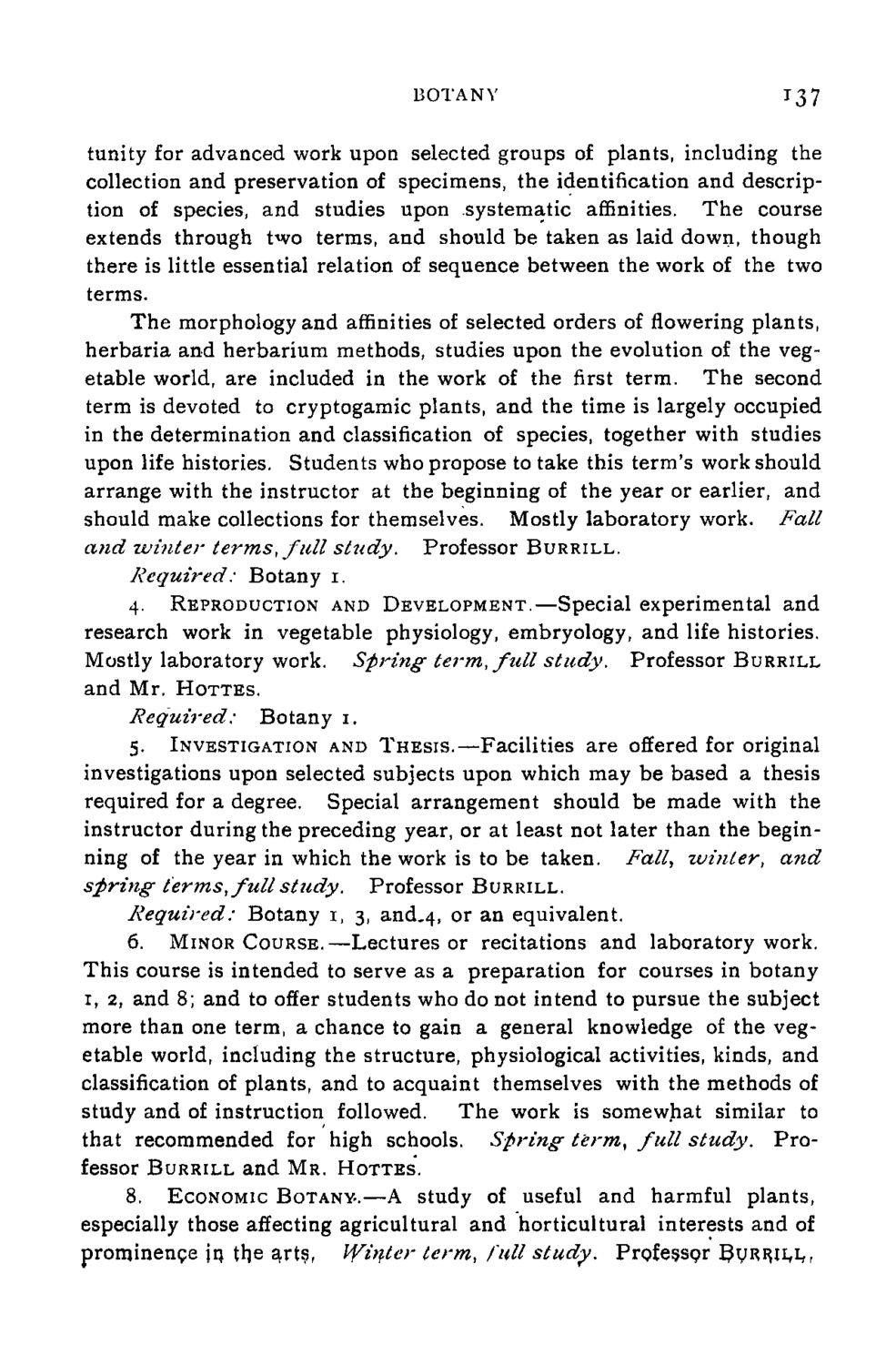| |
| |
Caption: Course Catalog - 1896-1897
This is a reduced-resolution page image for fast online browsing.

EXTRACTED TEXT FROM PAGE:
BOTANY 137 tunity for advanced work upon selected groups of plants, including the collection and preservation of specimens, the identification and description of species, and studies upon -systematic affinities. The course extends through two terms, and should be taken as laid down, though there is little essential relation of sequence between the work of the two terms. The morphology and affinities of selected orders of flowering plants, herbaria and herbarium methods, studies upon the evolution of the vegetable world, are included in the work of the first term. The second term is devoted to cryptogamic plants, and the time is largely occupied in the determination and classification of species, together with studies upon life histories. Students who propose to take this term's work should arrange with the instructor at the beginning of the year or earlier, and should make collections for themselves. Mostly laboratory work. Fall and -winter terms, full study. Required: Botany 1. 4. Professor BURRILL. REPRODUCTION AND DEVELOPMENT.—Special experimental and research work in vegetable physiology, embryology, and life histories. Mostly laboratory work. Spring term, full study. Professor BURRILL and Mr. HOTTES. Required: 5. Botany 1. INVESTIGATION AND THESIS.—Facilities are offered for original investigations upon selected subjects upon which may be based a thesis required for a degree. Special arrangement should be made with the instructor during the preceding year, or at least not later than the beginning of the year in which the work is to be taken. Fall, zuinler, and spring- terms, full study. Professor BURRILL. Required: Botany 1, 3, and.4, or an equivalent. 6. MINOR COURSE.—Lectures or recitations and laboratory work. This course is intended to serve as a preparation for courses in botany 1, 2, and 8; and to offer students who do not intend to pursue the subject more than one term, a chance to gain a general knowledge of the vegetable world, including the structure, physiological activities, kinds, and classification of plants, and to acquaint themselves with the methods of study and of instruction followed. The work is somewhat similar to that recommended for high schools. Spring term, full study. Professor BURRILL and MR. HOTTES. 8. ECONOMIC BOTANY-.—A study of useful and harmful plants, especially those affecting agricultural and horticultural interests and of prominence jn the arts, Winter term, full study. Professor BURRILL,
| |